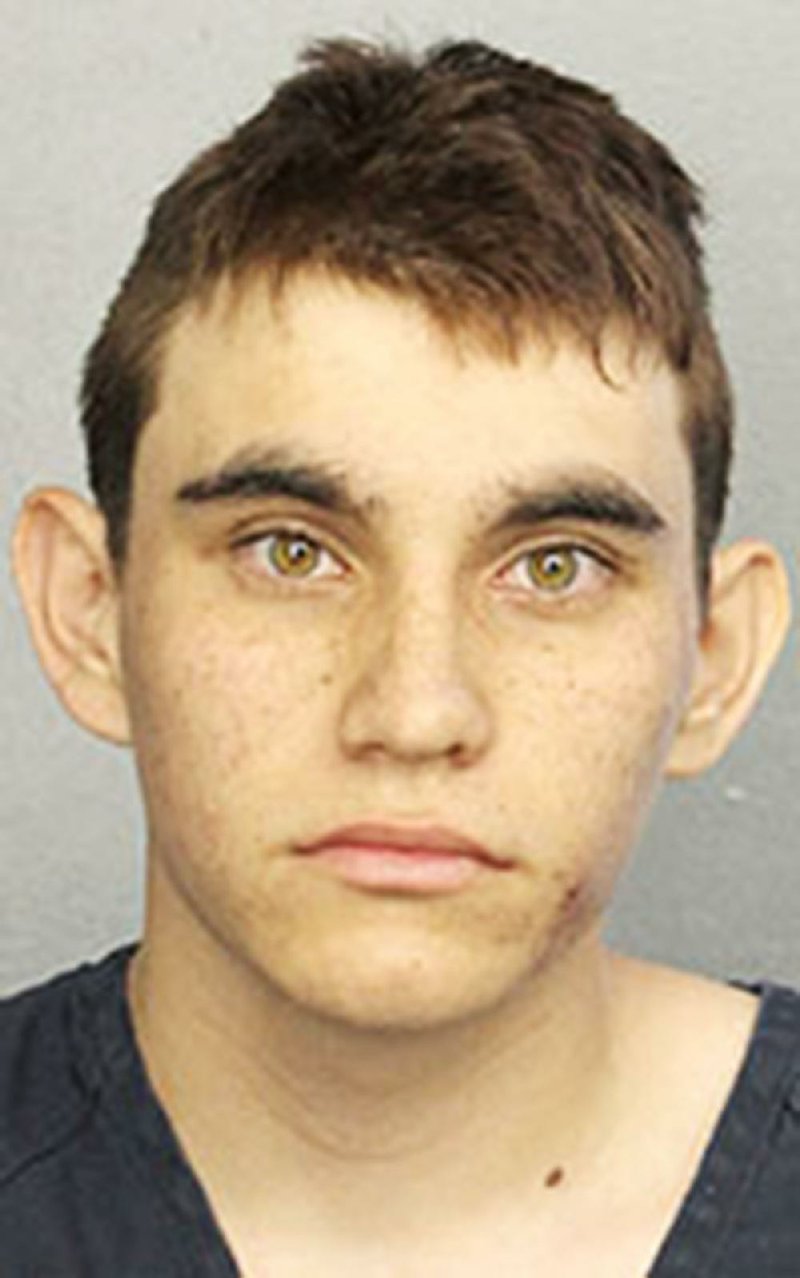Prosecutors in Broward County, Fla., said Tuesday that they would seek a death sentence for Nikolas Cruz, the 19-year-old accused of carrying out the shooting rampage at a Parkland high school last month.
The announcement came nearly a week after Cruz was indicted by a grand jury on 34 counts of premeditated murder and attempted murder in the Feb. 14 massacre, which killed 17 people and injured the same number.
In a notice filed Tuesday in circuit court, Michael Satz, the Broward state attorney, said the state intended to seek the death penalty for Cruz and would prove that the crime "was especially heinous, atrocious or cruel."
Satz's filing included multiple aggravating factors he said warranted a death sentence, including that Cruz knowingly created a risk of death to many people and that the killings were "a homicide ... committed in a cold, calculated, and premeditated manner."
Attorneys for Cruz do not contest his guilt, and they have offered to have him plead guilty if prosecutors did not seek the death penalty and instead agreed to a life sentence in prison.
Howard Finkelstein, the Broward public defender, has said it would be wrong for Cruz to be executed when authorities missed so many red flags and warning signs preceding the shooting.
Finkelstein said Tuesday that the prosecutor's announcement was not unexpected but again said that his team was ready to have Cruz plead guilty on all counts in exchange for 34 consecutive life sentences without parole.
Cruz's attorneys had last week filed court documents withdrawing an innocent plea filed on his behalf, saying that instead he would stand mute in response to the charges. While they continue to acknowledge that he carried out the rampage, they cannot plead guilty while Cruz could be sentenced to death, Finkelstein said Tuesday.
Click here for larger versions
Photos by The Associated Press
Photos by The Associated Press
This decision means south Florida will likely see a lengthy prosecution with emotional testimony about what unfolded inside Marjory Stoneman Douglas High School. Such a case would be among the state's highest-profile recent prosecutions, and it would also be a rarity after a mass shooting, as such crimes usually do not end with attackers taken into custody.
Fred Guttenberg, whose daughter Jamie Guttenberg died in the shooting, was angry the state decided to pursue the death penalty, noting how long capital punishment cases usually last.
"My reaction is as a parent of a deceased student, I expected that the state would have pulled the parents together to ask what we wanted and they didn't," he said.
"This guy is willing to plea and spend the rest of his life in the general population. Let him do that and let them do what they want with him," Guttenberg added. "Why not take the plea and let the guy rot in hell?"
In other developments, a student who is credited with saving the lives of 20 students by attempting to close and lock a classroom door during the attack was improving at a hospital. Anthony Borges, 15, was shot five times. Weeks after being shot, he fell critically ill of an intestinal infection. After surgeries, his condition was upgraded to fair.
Meanwhile, Florida voters may get a chance to decide whether or not they want to approve new gun control restrictions.
While Gov. Rick Scott just signed a new school safety and gun bill into law, the state's Constitution Revision Commission may vote to place gun restrictions on this year's ballot. The commission, a special panel that meets every 20 years, has the power to ask voters to approve changes to the state's constitution.
Information for this article was contributed by Mark Berman of The Washington Post; and by Curt Anderson, Gary Fineout, Jason Dearen and Tamara Lush of The Associated Press.
A Section on 03/14/2018
